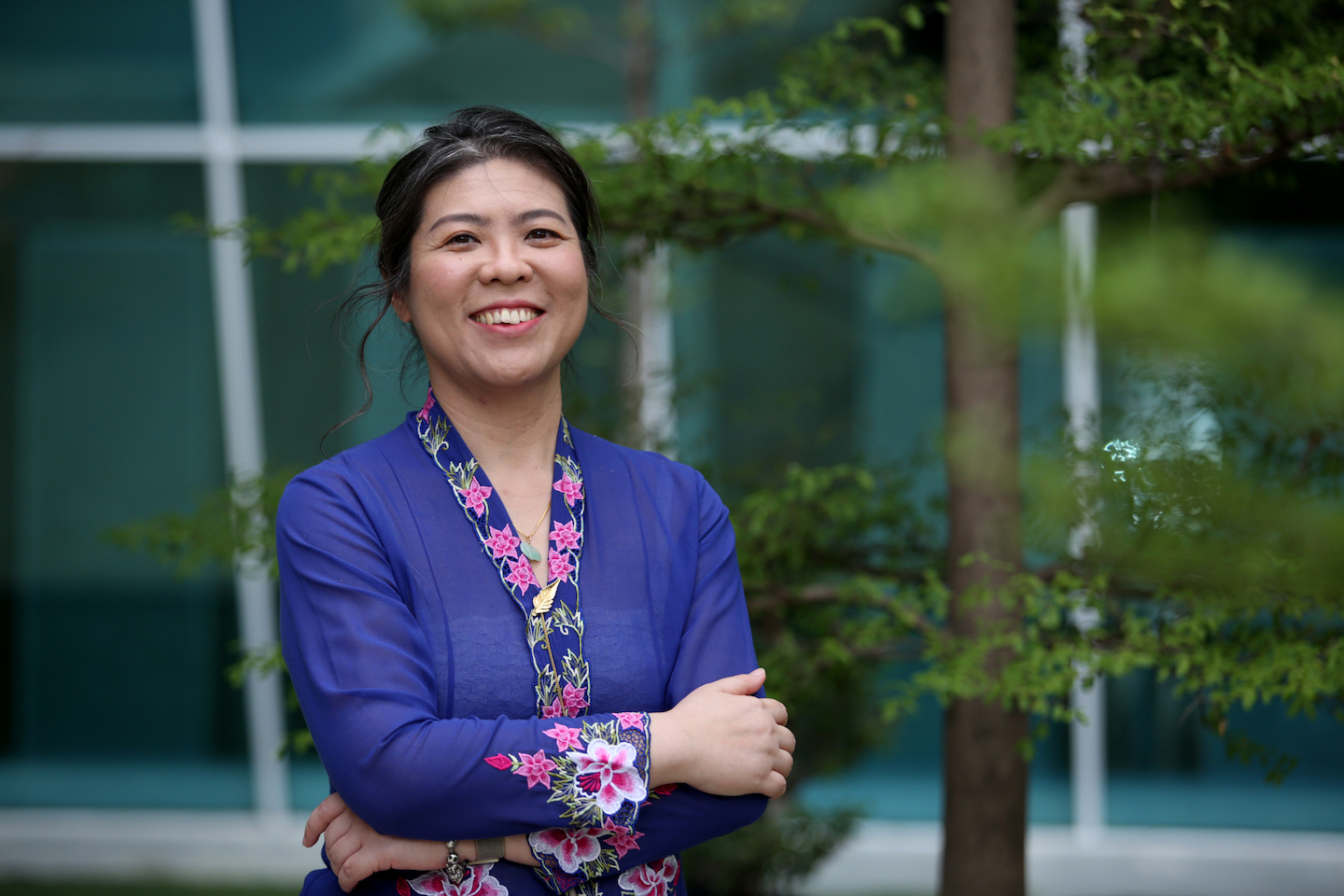
Tan, dressed in a traditional sarong and kebaya reflective of her Penang Peranakan heritage (Photo: Sam Fong/The Edge)
It was in New York — surrounded by 40 people from all over the world that American beauty brand Avon had selected for a global transformation exercise — which Tan Lin Nah found her purpose. She was the only Asian to have moved to the US for the project, but this was not for a lack of talent — Asians, it occurred to her, possess brilliant technical capabilities but often lack communication and collaboration skills. Her assignment in the Big Apple lasted just 18 months as she worked out a deal that would allow her to return to Malaysia and embark on a career that would give her a role in developing the next generation of local finance professionals.
When Inti International University & Colleges came knocking, Tan made the difficult decision to leave Avon, knowing that the education industry was the best way for her to achieve her goal. “I was happy where I was, but when Inti’s then CEO spoke to me about the kind of graduates he wanted the university to churn out, I realised that the impact I could make there would be much greater than within the beauty and finance communities,” Tan beams.
Tan and I met just as Malaysians were beginning to stretch their legs after the MCO was lifted. People were still wary about face-to-face meetings, but life needed to go on in some form or another. Inti’s Subang campus was fairly quiet on the afternoon I visited, as students were still operating on a virtual learning schedule as much as possible. Dressed in a traditional sarong and kebaya reflective of her Penang Peranakan heritage, the motherly CEO of the education group talks animatedly about her background in the business and the meandering journey that led her to this field. This included stints at one of Robert Kuok’s companies, PwC, an American manufacturing company and Avon.
Naturally, Covid-19 and the resulting lockdowns dominate the conversation quite a bit, especially how Inti’s teachers and students have dealt with the conversion to a virtual learning experience. According to Tan, Inti had already been operating on a blend of virtual and physical teaching for a number of years, so the transition to a completely online setting was not all that difficult, even if some adjustments were necessary. “We had an existing ecosystem, so from a technology and teaching perspective — all our teachers are trained for this — we were not totally unprepared. But I do think that people underestimate what it means to truly teach online, because it is not just about switching on your cameras.”
Indeed, there is much to be said about virtual learning and video communication as more people start to rely on it this year. Zoom fatigue has become a serious issue as people feel like they have to make a more emotional effort to appear interested, particularly in the absence of many non-verbal cues. It is much harder for students to remain engaged and interested in long sessions online, and Tan describes some of the tools used to keep things engaging and interactive. One that was especially interesting was called flipping the classroom, where students are assigned homework before the class, and not after.
---
For the full story, pick up a copy of The Edge Malaysia (Oct 27, 2020) at your nearest news stand. Save by subscribing to us for your print and/or digital copy.


